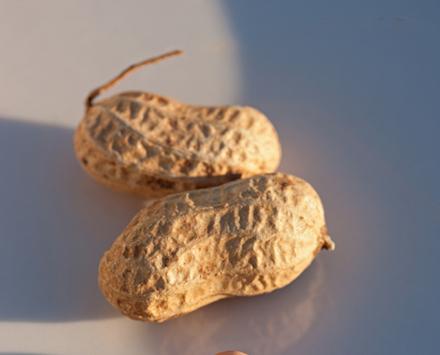Building a Better Peanut

An economically important crop throughout the world, peanuts are susceptible to many pathogens, particularly soilborne fungi that adversely affect peanut health and productivity.
ARS scientists and collaborators at Oklahoma State University and Texas AgriLife Research developed and released OLé last year. During field test, this new Spanish peanut variety demonstrated an increased resistance to Sclerotinia blight, a fungal disease causing yield loss that is a particular problem in Oklahoma, Texas, and the Virginia-North Carolina region.
Depending on field infestation severity, yield losses from this type of soilborne disease can reach 50 percent. Planting OLé may reduce Sclerotinia blight infestation, saving growers nearly $100 per acre in fungicide costs alone.
The variety also has good resistance to pod rot and packs high levels of oleic acid, a beneficial monounsaturated fatty acid that may provide healthy heart benefits. OLé peanut seeds are commercially available to growers for 2016 plantings.
Related Information
Article: OLé: A New Spanish Peanut High in Oleic Acid
Research Project: Development of Improved Peanut Cultivars and Germplasm for the Southwest Peanut Region of the United States



